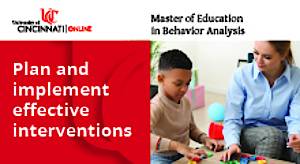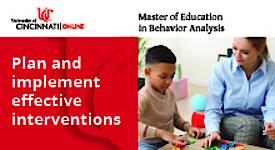Week in Review - September 25, 2020
NASET
WEEK IN REVIEW
National Association of Special Education Teachers
September 25, 2020 Vol 16 Issue #38
Dear NASET Members and Guests,
Welcome to NASET's WEEK in REVIEW. Here, we provide you with the latest publications fromNASET to read and or download, as well as some of the most interesting articles that have happened this week in the field of special education. We hope you enjoy this publication. Feel free to send us articles for this publication or let us know your thoughts about the WEEK in REVIEW at news@naset.org. Have a great weekend.
Sincerely,
WHATS NEW AT NASET
NASET's Parent Teacher Conference Handout
Disability and Functioning
Introduction
Many new statistics on children and adults with disabilities are important for parents to know. This PTCH provides parents with a series of important statistics on children and adults with problems in domains of functioning..
Special Education Classes Using PPE to Keep Students Safe
Students in special education classes at Manistee Intermediate School District are learning in person, and the school district is using more accessible PPE for students and teachers to stay safe. “There was lots and lots of planning through the summer,” said Special Education Director Brooke McIsaac. “Our students have been amazing and the parents have been super supportive.” MISD has 65 students enrolled in special education classes through the district. Students have been getting used to the extra PPE around the classroom. “Each student is required to wear a mask unless there’s a doctor note,” McIsaac said. “Our students have been complying with that very nicely we couldn’t be prouder of them.” Read More
Private School Students with Special Needs Face New School Year Challenges Head-On
With unique obstacles comes unique ways of dealing with them. During these challenging times, we want to check in on some of our First Coast families whose children face different types of challenges every day. Morning Star School is a Catholic school in Jacksonville for kids with learning disabilities. Principal Elaine Shott says a lot of students have sensory issues, but the mask requirement has not been the challenge they thought it would be. "The teacher was teaching social studies on citizenship," Shott said in an example. "The little boy said, 'I feel like a citizen when I wear my mask.'" But there are plenty of other challenges. Jacksonville tutors call this summer "the summer of learning loss on steroids." Shott says they're assessing students' learning more often and are now testing three times just in the first quarter. There is something new students and staff are excited about this year. In a few weeks their outdoor fitness area for the high school will be complete. It will include fitness and exercise stations. Read More
COVID-19 and Autism: The Hurdles to Overcome
The CDC estimates that 1 in 54 children have autism. For these kids and those with other special needs, access to learning services is vital, but with COVID-19 many of those offerings are stuck on pause. For Brad Davis when it was announced that school and other programs would no longer continue in person this past spring, he immediately thought of his 6 year old son who has autism. "Not only did the school based rigidness of his daily activities stop abruptly," said Davis, "but also the therapies he needed in order to continue to progress with his disability stopped abruptly as well so it was challenging." Davis's son is one of approximately 8,000 children in Central Illinois expected to be living with Autism. Read More
Mom Developing App to Help Children with Autism Spectrum Disorder
A mom is developing a new app to help kids on the autism spectrum be more independent. Tracey Hawkins is the mother of two sons with autism, James Preston and Adam. She got the idea when her first grader, James Preston, was transitioning into pre-K two years ago. "It was a rough transition," Hawkins said. "It was a transition full of behavioral outbursts, emotional outbursts, and I just know it was his way of communicating that he was not feeling comfortable." It's a similar type of new environment and transition that virtual learning is bringing this year. Hawkins is focused on keeping her son on a strict schedule, which works best for him. "Changes in his routine, changes in his classroom, his schedule, his peers, and teachers, it will kind of throw him off a bit...I wanted to be able to help my child at a time when he needed it the most," Hawkins said. Read More
Black Children at Higher Odds for ADHD
Current wisdom holds that white kids are at greater risk of attention-deficit/hyperactivity disorder (ADHD) than Black children are, but a new analysis finds the opposite is true. In a review of 21 previously published U.S. studies, which included nearly 155,000 Black children in the United States, researchers found that 14.5% of these children had ADHD. That's much higher than the prevalence estimate of 9.4% for all U.S. children, from the U.S. Centers for Disease Control and Prevention. "Black individuals are no less likely to be diagnosed with ADHD, contrary to what is usually stated in the scientific literature. In fact, they are even more at risk," said lead researcher Jude Mary Cénat. He is an assistant professor in the school of psychology at the University of Ottawa in Ontario, Canada. Read More

Coronavirus is Changing Available Resources for Adults Living with Disabilities
For parents of adults living with intellectual and developmental disabilities, the coronavirus pandemic has made everyday life especially difficult. Socialization and life skills programs normally conducted in person, have had to adapt. If they’ve been able to adapt at all. “The in-person services came to an abrupt halt throughout the entire community and really disrupted the structure and routine for so many individuals with disabilities,” said Samantha Sehter, the program manager for the disability services department at Goodman Jewish Family Services, called Joshua’s Path. “Typically, when a family calls us, we have pages and pages of referrals to give them,” she said. “But due to COVID, when we were receiving these calls about young adults and looking for engagement opportunities, there was virtually nothing.” Read More
Transitioning to Online Learning is Tough for Students with Disabilities
Two students with special needs share their excitement and fears for what will be a very different year at school. For students with disabilities, adjusting to constant change is more complicated. Students going back to school are adapting to change and uncertainty. For students with disabilities, adjusting to constant change can be more complicated. Reporter Tressa Versteeg spoke with two students in Maine about how they're navigating school in the time of COVID-19. In the spring, when the pandemic forced schools to use online learning, the transition was tough for students. Read More
Are Students with Disabilities Being Left Behind? Challenges of Virtual Learning
As school districts across the state deliberated over whether to bring students back to the classroom or teach them virtually, social media message boards filled with comments from North Carolina parents with strong opinions on all sides. But for Brooke Rose, there was no ideal option for her family in Wake County, which is holding virtual classes. As a teacher of sixth grade science, Rose preferred the remote option in her professional life. She spent a lot of time transferring her teaching material online this spring. Seeing the same kids every day online would be better than the rotating in-person schedule Wake School officials were considering, she said. But in her personal life, as the mother of a first grader with autism, Rose said she hoped her son Mason could return to in-person learning as soon as possible. Read More
State Education Department Allocates Funds for Special Education Services
The Georgia Department of Education recently announced $6 million will be allocated to school districts to help serve students with disabilities during the COVID-19 pandemic. Glynn County Schools will receive $23,872 from the FY21 IDEA Supplemental Relief Allocation and another $23,872 from the FY21 CARES Act Education Allocation, for a total of $47,744. Pam McKinnon, director of special education services and supports for Glynn County Schools, said this funding will be used to help her department continue offering needed services to students. “Since we are still in the midst of the pandemic, the negative impact it has had on our students, especially those with disabilities in Glynn County, is still being assessed,” McKinnon said. “We are grateful for the additional funds allocated to special education by the Georgia Department of Education. Read More
|
Congratulations to: Sue Bradley, Andrew Bailey, Karen Frantz-Fry, Olumide Akerele, Susan Mason, and Cindi Maurice who all knew the answer to last week's trivia question:
In its reauthorization of IDEA in 2004, Congress added a specific timeframe for initial evaluations of children with suspected disabilities. Under the federal law (Sec. 300.301), either a parent of a child or a public agency may initiate a request for an initial evaluation to determine if the child is a child with a disability. The initial evaluation must be conducted within how many days of receiving parental consent for the evaluation?
Answer: 60 DAYS
This Week's Trivia Question: “PLEP” is a summary describing the student's current achievement in the areas of need as determined by an evaluation. It specifically addresses the student's strengths, effective teaching approaches, and interventions to enable student success. It explains the needs of the student and states how the student's disability affects his or her involvement and progress in the general curriculum. “PLEP” is an abbreviation. What does “PLEP” actually stand for in special education (what is it an abbreviation for)?
If you know the answer to this week's trivia questions, email it to us at contactus@naset.org by September 29, 2020. If you are correct, you will be acknowledged in next week's NASET's Week in Review
How this Special Education Teacher Helps Students Build Connections, Even Remotely
When Artemis Kolovos noticed that her students were having trouble making friends and working through conflict, she began brainstorming about how to address the issue.
Kolovos, who teaches special education students at Budlong Elementary, a preK-8 campus in Lincoln Park, knew that what happened at lunchtime would eventually make its way into her middle grades classroom. So she introduced a novel called "Freak the Mighty," about two young boys whose friendship helps them face physical and emotional challenges. "We realized that we needed to address these topics directly and in a way that students could connect to," said Kolovos, who became a teacher after mentoring a young person who she felt wasn't being adequately supported at their school. Read More
Endocrine-Disrupting Chemicals Linked to ADHD-Related Behaviors
New research suggests that endocrine-disrupting chemical exposure could substantially increase the risk of developing ADHD. A US research team, led by Jessica R. Shoaff, PhD, Channing Division of Network Medicine, Harvard Medical School, Brigham and Women’s Hospital, evaluated the link between exposure to select endocrine-disrupting chemicals during adolescence and ADHD-related behaviors. Currently, ADHD is the most common childhood neurobehavioral disorder, impacting approximately 9.4% of children in the US. It is believed that prenatal and early childhood exposure to endocrine-disrupting chemicals could be linked to ADHD, but it has not been examined during adolescence. Read More
Teacher Stress Linked with Higher Risk of Student Suspensions
Just how stressed are teachers? A recent Gallup poll found teachers are tied with nurses for the most stressful occupation in America today. Unfortunately, that stress can have a trickle-down effect on their students, leading to disruptive behavior that results in student suspensions. One of those overburdened teachers is Jennifer Lloyd, a high school English teacher in Maryland and a graduate student at the University of Missouri. She has noticed how perceptive her students are to her mood and their ability to feed off of her energy, for better or worse. "If I come into class from a rough meeting or a stressful morning and I bring those feelings into the classroom environment, the kids notice," Lloyd said. "Sometimes they will give that negative energy right back to me, and we all end up having a bad day." Read More
Gender Harassment and Institutional Betrayal in High School Take Toll on Mental Health
High school students who endure gender harassment in schools that don't respond well enter college and adulthood with potential mental health challenges, according to a University of Oregon study. The study, published last month in PLOS ONE, found that 97 percent of women and 96 percent of men from a pool of 535 undergraduate college students had endured at least one instance of gender harassment during high school. Experiences of gender harassment, especially for those who encountered it repeatedly, were associated with clinically relevant levels of trauma-related symptoms in college. "We found that the more gender harassment and institutional betrayal teens encounter in high school, the more mental, physical and emotional challenges they experience in college," said lead author Monika N. Lind, a UO psychology doctoral student. "Our findings suggest that gender harassment and institutional betrayal may hurt young people, and educators and researchers should pay more attention to these issues." Read More
Listening to Parents Can Curtail Autism’s Diagnostic Odyssey
Those in the medical field struggle to screen and diagnose autism. Our standardized screening tests are not perfect: They often erroneously flag children who turn out not to have autism and miss many of those who do. What’s more, there are far too few autism specialists to evaluate all those suspected of having the condition. As a result, many autistic children and their families find themselves waiting a long time — sometimes even years — for an autism diagnosis. Fortunately, there may be a simple way to address the problem: surveys that ask parents about their impressions of their child’s behavioral problems. Parents often already complete such surveys — they are a part of the litany of forms families fill out during their quest to see a specialist. These forms ask parents about their child’s autism traits, challenging behaviors and ability to perform daily tasks, something known as adaptive functioning. Read More
How People with Disabilities Weather Natural Disasters
Casey Green, a high school history teacher in Natchitoches, Louisiana, saw her power flicker out Thursday, August 27, the morning Hurricane Laura hit as a Category 2 storm. “We got a direct hit,” says Green, who went outside to watch the eye of the storm pass over the house just outside town where she lives with her husband, and to look out for fallen trees blocking the driveway. “The first thing you have to consider is if you can leave,” Green says. So far, everything was clear, but that didn’t mean she’d be OK to wait things out without electricity. Green has cerebral palsy, a non-progressive motor disorder, and with her condition comes additional considerations when deciding if and when to evacuate from the hurricanes the Bayou State is increasingly known for. “The biggest thing for me is driving,” she says. “I can drive and I have a car, but I tend not to drive very far.” Read More
JOB POSTINGS
*Virtual Special Education Teacher Positions - K12 believes in education for everyone. We provide families an online option for a high-quality, personalized education experience. Students can thrive, find their passion, and learn in an environment that encourages discovery at their own pace. In support of this, we are committed to creating and maintaining a culture of inclusion and diversity. To learn more - Click here
* Special Education Teacher - $60,000/school year (185 days), summers off with year-round pay and year round appreciation. Special Education Teachers needed in Arizona (Phoenix and surrounding cities). Needs are in the self-contained and resource settings serving students with emotional disabilities (ED), Autism (A), Severe/Profound (S/P), and Intellectual Disabilities (ID). STARS is the largest school contract agency in AZ. STARS is owned and operated by Occupational Therapists. You will be an employee and receive full benefits - To learn more - Click here
* Special Education Teacher (Chicago) - I’ve just been retained by Bennett Day School (one of Chicago’s top-ranked private schools) to identify an outstanding Learning Resource & Special Ed Teacher. To learn more - Click here
* (Remote) Special Education Teacher - Special Education Teacher provide instruction, support and guidance, manage the learning process, and focus on students’ individual needs as defined by each student’s IEP. The special education teacher is also responsible for the compliance documents required in serving students with special needs. To learn more - Click here
* Early Childhood Specialist - Willamette Education Service District is accepting applications for multiple full-time (1.0 FTE) EI/ECSE Specialist positions with the Special Education Department’s Early Intervention/Early Childhood Special Education (EI/ECSE) program. The positions are for the 2020-2021 school year and may be based in Marion, Polk and/or Yamhill County. Successful candidates will will follow a 190-day calendar and will begin on August 21, 2020. To learn more - Click here
* Executive Director of Special Education - Garland ISD seeks an Executive Director of Special Education with the following qualifications, Master’s Degree, Special Education Certification, Principal/Mid-Management Certification, three (3) years’ teaching experience; special education preferred, experience in successful leadership role at the District or State level, earned or in progress doctorate. To learn more - Click here
If you are an Employer looking for excellent special education staff - Click here for more information
FOOD FOR THOUGHT
The swiftest way to triple your success is to double your investment in personal development.
Robin Sharma
Return to Week in Review Main Page - Click here




